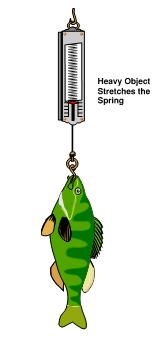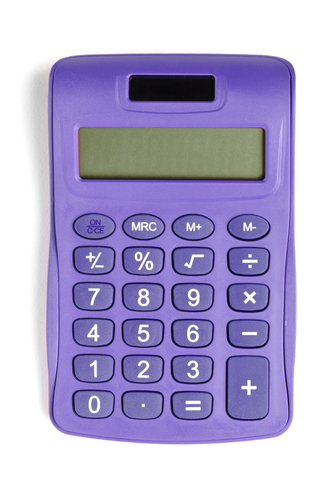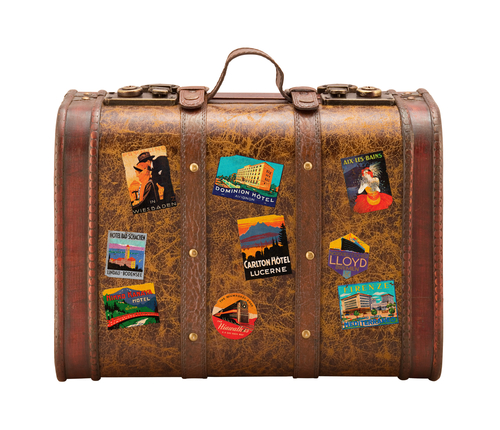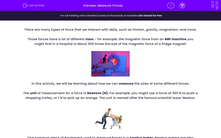There are many types of force that we interact with daily, such as friction, gravity, magnetism, and more.
Those forces have a lot of different sizes - for example, the magnetic force from an MRI machine you might find in a hospital is about 300 times the size of the magnetic force of a fridge magnet!

In this activity, we will be learning about how we can measure the sizes of some different forces.
The unit of measurement for a force is Newtons (N). For example, you might use a force of 300 N to push a shopping trolley, or 1 N to pick up an orange. The unit is named after the famous scientist Isaac Newton.

One common piece of equipment used to measure forces is a newton meter. Newton meters are also sometimes called force meters, or spring balances.
Newton meters are used in science classrooms and labs, and there are different types that measure different ranges of forces. You can see below an image of a newton meter.

Newton meters have an internal spring. The internal string stretches by different amounts depending on the size of the force acting on it. The greater the stretch of the spring, the greater the force, and this causes the needle on the newton meter to move down and show that force on a scale. We can then read the size of the force from the newton meter.
We use newton meters in experiments in physics classrooms frequently. For example, you could use a newton meter to measure the force needed to pull an object across a surface. This might help you to learn about the force of friction.
You could also use a newton meter to measure the weight of an object. The image below shows how we could do that.

In the image above, we can see that the weight of the fish is pulling on the hook and spring of the newton meter. We could read the weight of the fish by looking at the scale on the newton meter.
Let's learn about the difference between mass and weight.
Mass is defined as the amount of material something is made up of. Mass is normally measured in kilograms (kg).
Weight is defined as the force of gravity acting on an object. Because it is a force, it is measured in Newtons (N).
The terms 'mass' and 'weight' mean similar things, and it's easy to mix them up! In fact, it's really common for someone to use the word 'weight' when they really mean mass. For example, in day to day life, someone might say the 'weight' of something is 10 kg, but in the context of science, that should be called a mass of 10 kg.
Weight can be calculated using this equation:

Weight (N) = Mass (kg) × Gravitational Field Strength (N/kg)
Gravitational field strength, in simple terms, just means how strong gravity is. On Earth, the gravitational field strength is about 10 N/kg.
That means that if a suitcase has a mass of 8 kg, we can find its weight like this:
Weight = 8 kg × 10 N/kg = 80 N

Now that we understand how to measure force, let's try some questions!








